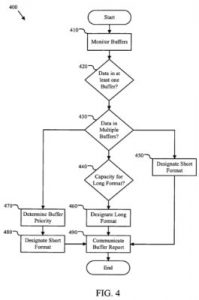 Although the din of the patent troll debate has quieted on Capitol Hill, which has been back in session this September, there are those who continue to push onward with the charge that patent litigation excuses are widespread. A closer look at each case, however, casts doubt on the idea as to whether an entity can truly be a troll if it’s actually successful at protecting its patent rights in court.
Although the din of the patent troll debate has quieted on Capitol Hill, which has been back in session this September, there are those who continue to push onward with the charge that patent litigation excuses are widespread. A closer look at each case, however, casts doubt on the idea as to whether an entity can truly be a troll if it’s actually successful at protecting its patent rights in court.
This clouded line of reasoning can be seen in a series of articles recently published by technology news website Ars Technica. On September 20th, the site published a story about a $22.1 million verdict handed down in the U.S. District Court for the Eastern District of Texas (E.D. Tex.) against American consumer tech giant Apple, Inc. (NASDAQ:AAPL). The damages award was handed out in a patent infringement suit filed by Acacia Research Corp. (NASDAQ:ACTG), headquartered in Newport Beach, CA. Early on in the piece, the author for Ars Technica writes that, “Acacia is in a controversial business that critics refer to as ‘patent trolling.’”
The business which Acacia is actually involved in is patent licensing and enforcement, and widespread misunderstanding of this business model has allowed media outlets and politicos alike to continue harping on the patent trolling charge. These patent assertion entities (PAEs) often only come into focus when patent infringement litigation is involved, as they’re not involved in developing the patented technology or practicing it. This is, understandably, a major reason why PAEs are conflated with patent trolls, which are notorious for their abuses of the litigation system. Patent licensing, however, is a legitimate business or else major tech players like Qualcomm (NASDAQ:QCOM) and even Apple wouldn’t be involved with patent licensing activities. Without the ability to enforce patent rights, licensing as a business activity stops being economically viable for many.
It’s not too hard to recognize an actual patent troll, it’s just difficult to find one. One great example of a living, breathing patent troll is Texas patent attorney Jay Mac Rust. He’s the patent lawyer who was involved with setting up 101 limited liability companies which he used to send demand letters to more than 16,000 companies, many of them small businesses, to seek royalties on a patent covering a scan-to-email technology for documents. Despite the massive amount of demand letters, Rust’s company MPHJ Technologies only filed its first patent infringement lawsuit in January 2014, the same month it came under fire by the Federal Trade Commission (FTC) for its deceptive demand letter practices. In May 2016, Rust was also targeted by the U.S. Securities and Exchange Commission (SEC) for fraudulent loan practices, so the content of his character has been exposed by multiple federal agencies for all to see.
Thus, one part of the definition of a patent troll would seem to involve sending demand letters in the hopes of extracting a royalty payment without ever once going to court. By virtue of actually bringing its infringement complaint to a U.S. district court, Acacia Research fails this litmus test. Much of the fears of patent trolling also involve the idea that the patent troll, a savvy and well-heeled opponent, is taking advantage of mom-and-pop businesses which dot the roadsides of America’s Main Streets. Here again, the “patent troll” moniker seems to elude Acacia Research. Apple is no mom-and-pop store, and as of this writing that tech giant had a market cap of $607.5 billion, a treasure trove compared to Acacia’s relatively paltry $321 million market cap.
 Capping off the difficult nature of proclaiming Acacia to be a patent troll is the pesky reality that the company was successful in asserting its patent rights on behalf of subsidiary Cellular Communications Equipment (CCE). The fact that a patent troll relies on demand letter abuses rather than actual litigation suggests that they might not have an actual case, and the troll knows it. The jury verdict in the CCC v. Apple case clearly shows that the jury found Apple guilty of infringing five claims of the patent-in-suit. That would be U.S. Patent No. 8055820, titled Apparatus, System, and Method for Designating a Buffer Status Reporting Format Based on Detected Pre-Selected Buffer Conditions. The patent covers a technology which provides for a new method of communicating buffer status reports for data transmissions which are more efficient and flexible. Apple’s technology was found to infringe claims related to methods, apparati and computer-readable medium related to communicating buffer status reports.
Capping off the difficult nature of proclaiming Acacia to be a patent troll is the pesky reality that the company was successful in asserting its patent rights on behalf of subsidiary Cellular Communications Equipment (CCE). The fact that a patent troll relies on demand letter abuses rather than actual litigation suggests that they might not have an actual case, and the troll knows it. The jury verdict in the CCC v. Apple case clearly shows that the jury found Apple guilty of infringing five claims of the patent-in-suit. That would be U.S. Patent No. 8055820, titled Apparatus, System, and Method for Designating a Buffer Status Reporting Format Based on Detected Pre-Selected Buffer Conditions. The patent covers a technology which provides for a new method of communicating buffer status reports for data transmissions which are more efficient and flexible. Apple’s technology was found to infringe claims related to methods, apparati and computer-readable medium related to communicating buffer status reports.
Perhaps just as important is the fact that the jury verdict was asked to consider if the infringed claims were invalid and came back with a decision that Apple didn’t prove that any of the claims were invalid in light of being obvious. District courts might not see the invalidation rates caused by inter partes review (IPR) proceedings at the Patent Trial and Appeal Board (PTAB), but companies facing patent infringement litigation tend to use every weapon at their arsenal to legally invalidate a patent-in-suit. In fact, a search of PTAB’s End to End (E2E) system shows that Apple filed an IPR challenging CCE’s ‘820 patent and the IPR was denied institution last July because Apple couldn’t prove obviousness in light of other patents. It’s tough to call Acacia Research and its CCE subsidiary patent trolls when they’ve successfully defended multiple legal challenges against their patent.
This misinformed line of thinking on patent trolls is carried through in other articles recently published by Ars Technica. On September 21st, Ars reported on another jury verdict against Apple which was decided in the U.S. District Court for the District of Delaware (D. Del.). $3 million in damages was awarded to MobileMedia Ideas LLC, a company owned by patent pool firm MPEG LA. Again, Ars typifies MobileMedia’s patent licensing activities as a patent troll business model. But again, MobileMedia is the smaller entity in the case, it didn’t issue a frivolous demand letter and it successfully defended its patent rights in district court. So where’s the troll? Another article, published by Ars on October 2nd, levied the patent troll charge against Internet security company VirnetX Holding Corp. (NYSEMKT:VHC) after that company was awarded $302.4 million in damages, again from Apple, in E.D. Tex. According to documents obtained through PTAB E2E, one of the VirnetX patents Apple was accused of infringing faced 11 different IPR proceedings, including four filed by Apple. All four of those IPRs were terminated without being instituted by PTAB because Apple did not file within the statutory time limit which allows a party to file an IPR within one year after receiving notice of infringement allegations on that patent. The VirnetX patent which survived so many IPR petitions was U.S. Patent No. 7418504, which is titled Agile Network Protocol for Secure Communications Using Secure Domain Names.
To be fair, the coverage by Ars Technica doesn’t take the same vituperative tone as other voices who have concerns related to abuses of the U.S. patent system. However, it’s paramount for those who are covering the patent world to be judicious in their use of the “patent troll” designation, especially as the problem has been used to support legislation proposed in both houses of Congress, legislation decried by small businesses in many regions of the country. So a legislative fix to a patent system problem affecting small businesses could result in even more systemic problems for small businesses. Not to mention the small innovators who can easily be shrugged off and derided as a patent troll by larger companies simply for enforcing a property right which has existed since the earliest days of the United States.
None of this is to say that Ars Technica provides poor tech coverage. Indeed, it’s this publication’s high degree of visibility which makes challenging any misguided viewpoints even more important. However, Ars could absolutely be accused of having a knowledge of the U.S. patent system that fails to account for some important nuances in patent licensing and enforcement. Indeed, they would do well to take into consideration the FTC’s recent admonition in the long awaited PAE report: “In the Commission’s view, a label like ‘patent troll’ is unhelpful because it invites pre-judgment about the societal impact of patent assertion activity without an understanding of the underlying business model that fuels such activity.”

![[IPWatchdog Logo]](https://ipwatchdog.com/wp-content/themes/IPWatchdog%20-%202023/assets/images/temp/logo-small@2x.png)

![[Advertisement]](https://ipwatchdog.com/wp-content/uploads/2024/04/UnitedLex-May-2-2024-sidebar-700x500-1.jpg)
![[Advertisement]](https://ipwatchdog.com/wp-content/uploads/2024/04/Artificial-Intelligence-2024-REPLAY-sidebar-700x500-corrected.jpg)
![[Advertisement]](https://ipwatchdog.com/wp-content/uploads/2024/04/Patent-Litigation-Masters-2024-sidebar-700x500-1.jpg)

![[Advertisement]](https://ipwatchdog.com/wp-content/uploads/2021/12/WEBINAR-336-x-280-px.png)
![[Advertisement]](https://ipwatchdog.com/wp-content/uploads/2021/12/2021-Patent-Practice-on-Demand-recorded-Feb-2021-336-x-280.jpg)
![[Advertisement]](https://ipwatchdog.com/wp-content/uploads/2021/12/Ad-4-The-Invent-Patent-System™.png)






Join the Discussion
5 comments so far.
Anon
October 13, 2016 06:09 amGene,
It’s Orwellian – the Ministry of Truth has declared it to be – why would the lemmings not see it so?
Gene Quinn
October 12, 2016 07:05 pmCurious-
Just put to bed another article on inaccurate (actually outright wrong and likely intentionally so) reporting. It will publish on Thursday.
And then you get Above the Law republishing this absolute fabrication from Tech Dirt:
http://abovethelaw.com/2016/10/prominent-pro-patent-judge-issues-opinion-declaring-all-software-patents-bad
They actually characterize Judge Mayer as “pro-patent.” What passes for information on the Internet is atrocious.
-Gene
Curious
October 12, 2016 06:09 pmArs Technica has an anti-patent bias going back many, many years. One can only speculate as to the reason why. However, I found their reporting to be very wanting in terms of accurately portraying the law.
AttorneyInFact
October 11, 2016 02:39 pmAny patent owner who goes to court and wins a judgement is not a patent troll, period, end of story.
Valuationguy
October 11, 2016 10:16 amSteve,
Ars Techica takes the ‘appropriate’ tone in its articles towards patents based on what its advertisers and corporate ‘supporters’ demand and no gentle chiding, challenging, or ‘correcting’ them is going to stop misleading articles like those you point out.
Typically any small company (trying to prove or actually succeeding in) proving infringement against one of the industry bellweathers’ (Apple/Nokia/Microsoft/Cisco/Quallcomm/IBM/Samsung/etc….) which are the main advertisers paying the site’s bills is going to be labeled a patent troll. When two industry giants are pitted against each other…the coverage is a bit more balanced but typically benefits the larger advertiser (or the more local one).
In a similar manner…most of the readers of Ars Techica typically gravitate there due to the positive bias of articles toward the products of these main advertisers which they have been conditioned to accept (i.e. Apple fanboys and girls).
Essentially….the reporters and owners of the site know who butters their bread and they are willing participants in spreading the propaganda thought up in the corporate marketing departments of these tech giants to try and drive more sales.
The best defense is a good offense….and since the courts continue to (occasionally) blow away these company’s defenses…they attack any and every patent owner that reveal their unsavory practices of efficient infringement.